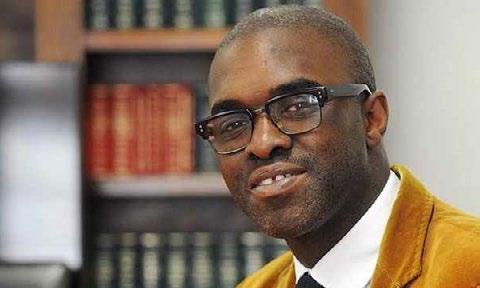
3 minute read
From Africa to the world
THE SILICON DURBS STORY SO FAR
“SILICON Durbs came about almost three years ago when one realised how Durban was behind and how it was left out when it comes to technology, especially technology entrepreneurship. This got me to see the problem not only for me but for the city as a whole and opt to solve it.”
Advertisement
These were the words of the founder and CEO of Silicon Durbs, Lindani Mkhize, at the launch of Silicon Africa in Sandton.
Mkhize has always had the vision to develop an African city economy through technology entrepreneurship and technology innovation on the continent. With that said, he always found it challenging to branch out to other African countries. “I see Silicon Africa being the summary of the future of Africa and the structures we are setting up today growing to a level where they receive government spend across all African countries Silicon Africa will grow into in the coming 10 years.”
African News Agency (ANA) CEO Vasantha Angamuthu was one of the speakers at the launch of Silicon Africa and spoke about African innovation and the importance of collaborating with Silicon Africa.
IOL Tech Editor Faheem Khota was also at the launch and spoke about the role IOL Tech will play in highlighting the tech start-up community in Africa.
“Through 2021 we will be extensively covering tech ecosystems across North, East, West and South Africa and identifying key start-ups in those regions. This will culminate in a summit in late 2021,” said Khota.
For more information about the launch of Silicon Africa visit our IOL Tech Facebook page to watch the recorded live feed.
The TECH ROAD to quick riches
TRIUMPHS, HEARTACHE MARK INNOVATION WORLD
WESLEY DIPHOKO
BIG EXIT, fintech, failure, success and impact are the keywords that define the past decade in the technology start-up world.
During this decade we witnessed major tech companies failing and closing shop. We also witnessed some great tech start-up success stories with founders who are still flying the tech start-up flag.
This decade was also marked by technology innovations that are truly making a difference in people’s lives. Today, we shine a spotlight on the technologies and tech start-ups that shaped the past decade.
In the tech start-up world starting a company and selling it for a sizeable amount or an exit is the ultimate goal. Two local fintech and edutech start-ups completed historical exits by South African standards.
Fundamo, a fintech start-up that was hatched at Sanlam, laid the foundation for the decade through its acquisition by Visa. In June 2011, Fundamo was acquired by Visa for $110 million (R1.7 billion). Fundamo built one of the world’s most advanced and sophisticated mobile financial service platforms.
The platform was deployed in more than 34 countries across Africa, Asia and the Middle East, offering mobile financial services to unbanked and underbanked mobile subscribers including person-to-person payments, bill payments, wireless airtime top-up and ticketing.
The Fundamo big exit story was followed by an Edutech start-up exit story. In 2017, an educational technology start-up, Get Smarter, was acquired by 2u, an international educational technology company, for $100m (R1.48bn).
This decade also had its share of tech start-up failure stories. In 2012, South African dreams of developing the country’s first electric vehicle, Joule, were dashed as the tech start-up behind the project folded. Joule was an electric five-seat passenger car by Optimal Energy, a South African tech start-up based in Cape Town.
One of the biggest tech names to join the South African tech start-up cemetery in the last decade is one Stellenbosch founded company, Mxit. What was then considered to be the biggest instant messaging platform in the country became a victim of tech developments such as WhatsApp.
In the history of Mxit users, 2015 will forever be remembered as the sad moment for millions of users of this African tech giant. Mxit was officially closed down in 2015 and its intellectual property handed over to a trust.
In the next decade more will need to be done by local tech start-ups.











